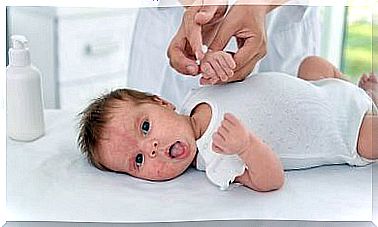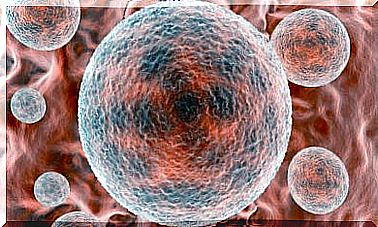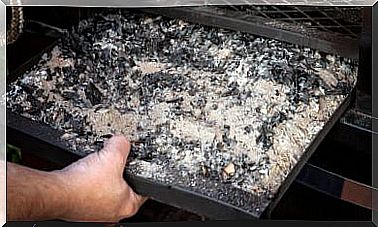5 Signs Your Baby Might Be Hungry
For parents of newborns, everything is new and unknown. Also with regard to their diet. There are some signs that the baby might be hungry and that can provide some guidance in these times of doubt and worry.
In the following article we know some of them and how to know if the little one is hungry or has all the necessary nutrients to develop normally.
What are the main signs that my baby might be hungry?
As most infant feeding experts indicate, breast milk is the best food for your baby. Or formula or replacement if you can’t breastfeed for whatever reason.
The feedings have to be on demand and the main guide is the baby’s own hunger sensation. It is necessary to learn to interpret these signs of both hunger and satiety. At first it may seem complicated, but as the days go by, all parents and caregivers end up finding a way.
Although each case is unique, there are some signs that indicate that the baby is hungry and that usually apply to all children in general.
1. Find the chest
If the baby is in your arms and puts his head close to the chest or nipple, he is hungry and wants to find the breast. It may also move its head a lot from side to side as if looking for food.
2. Is more active
He is more awake and attentive to what is happening around him and makes constant movements. This indicates that the baby is hungry, as this sensation causes them a little more excitement.
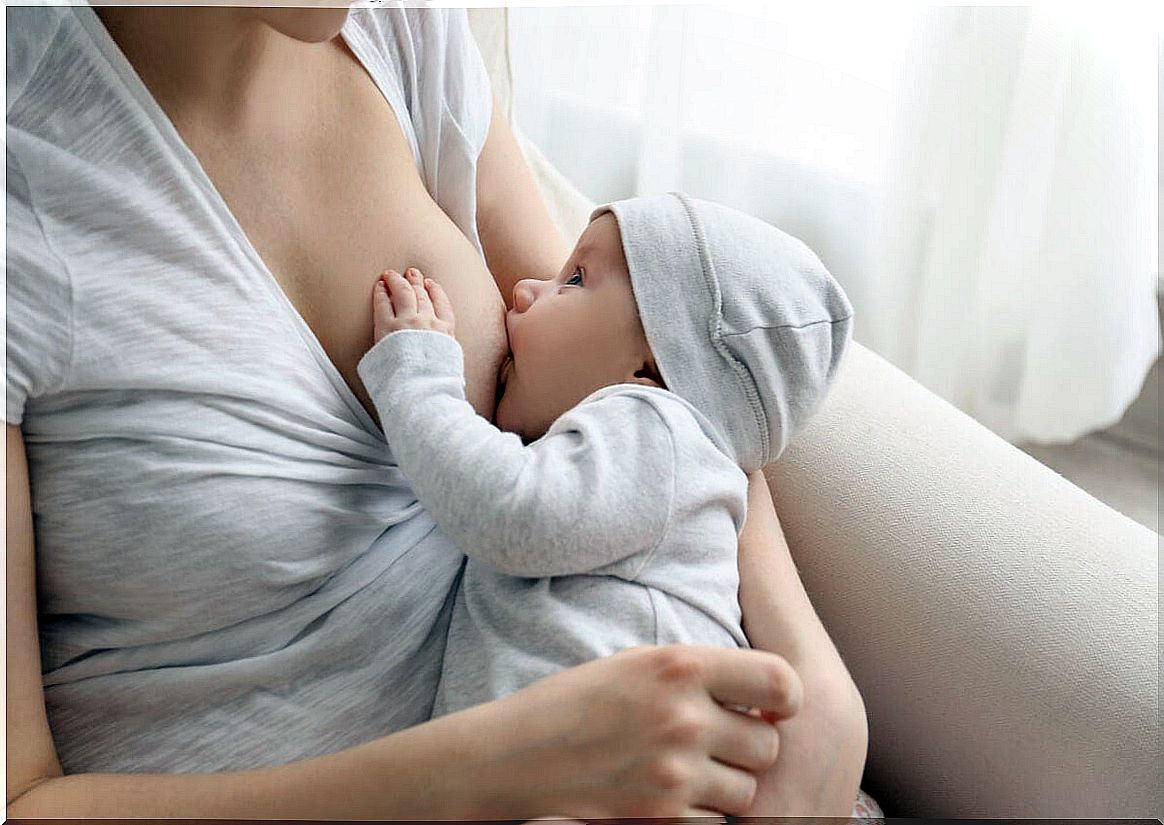
3. Try to suck
A child who wants to eat uses sucking movements with his mouth, even if he does not have a pacifier or any toys or teethers. It is also common for him to bring his hands to his mouth and suck them insistently.
4. Stick out your tongue
Clicking with the mouth and movements of the tongue can also come as a sign of need and desire to eat. Although sometimes the noise is very soft and almost imperceptible.
5. Cries and gets angry
The crying of a baby is almost always a sign that something is wrong and, sometimes, it is due to the feeling of hunger that he has. However, reaching the point of crying indicates that you have been needing to eat for a long time.
If this is the case, it is better to calm him down before offering the shot, because otherwise he will be too nervous to make it a good one. In addition, you may swallow more air than normal and later suffer from gas problems and discomfort.
How to know if you are hungry after being fed
Recognizing when the baby wants to eat is one of the main concerns. However, the doubts do not end here, as another common concern may arise: knowing if the baby is eating enough or is left hungry. In this case, you also learn to interpret some signs.
- Your muscle tone decreases: this is the most common sign during the first six months of life, along with a reduction in your activity. Relaxation indicates satiety.
- Loses interest in the breast or nipple: the baby turns his mouth away from the nipple or bottle when he is no longer hungry. If the milk is offered again and still shows no interest is that he is truly satisfied.
- Focus your attention on other things: once they have been satiated it is usual that they want to do other things. It may be that he looks away insistently or follows a toy with his gaze. Ultimately, food takes a back seat.
- He is happy: if the feeding has been satisfactory for the baby and he is no longer hungry, he is happy, laughs and even plays. If, on the other hand, he is tired, he will show signs of wanting to go to sleep.
Can the baby overeat?
It is just as important to know and respect the signs that your baby may be hungry as those that indicate that they are full. They are clear when to stop eating and it is rare that they overeat.
It is never advisable to force the little ones to eat, not even during breastfeeding. Young children’s hunger is very erratic and unpredictable and the amounts can vary greatly from day to day or even between feedings.
A crying baby does not always indicate that he is hungry. If you really want to eat, when you bring it to the breast it will suck the milk. Sometimes, on the other hand, they need to be close to it, because it gives them a feeling of tranquility and security.
Signs that my baby is well nourished
The best way to know that a baby eats what he needs is his growth. If you gain weight and develop progressively and within the usual parameters, you are not hungry and you have all the nutrients.
It is important to continue with the follow-up visits and all the pediatric controls. There, any doubts about feeding the baby are resolved, in addition to keeping track of their health.
It is essential to watch your bowel movements and urine. The baby who eats enough defecates several times a day and the stools are liquid and yellow in color. His urine is also clear and abundant.
On the other hand, if you show any of these signs, it may be a sign that something is wrong with your diet:
- It shows sleepy, tired and with little energy, even to suck.
- Spend a lot of time (more than 45 minutes) taking a feed or drinking a bottle.
- His stools are scanty or green in color, and he also makes little urine.
- Weight gain is little or not enough for his age.
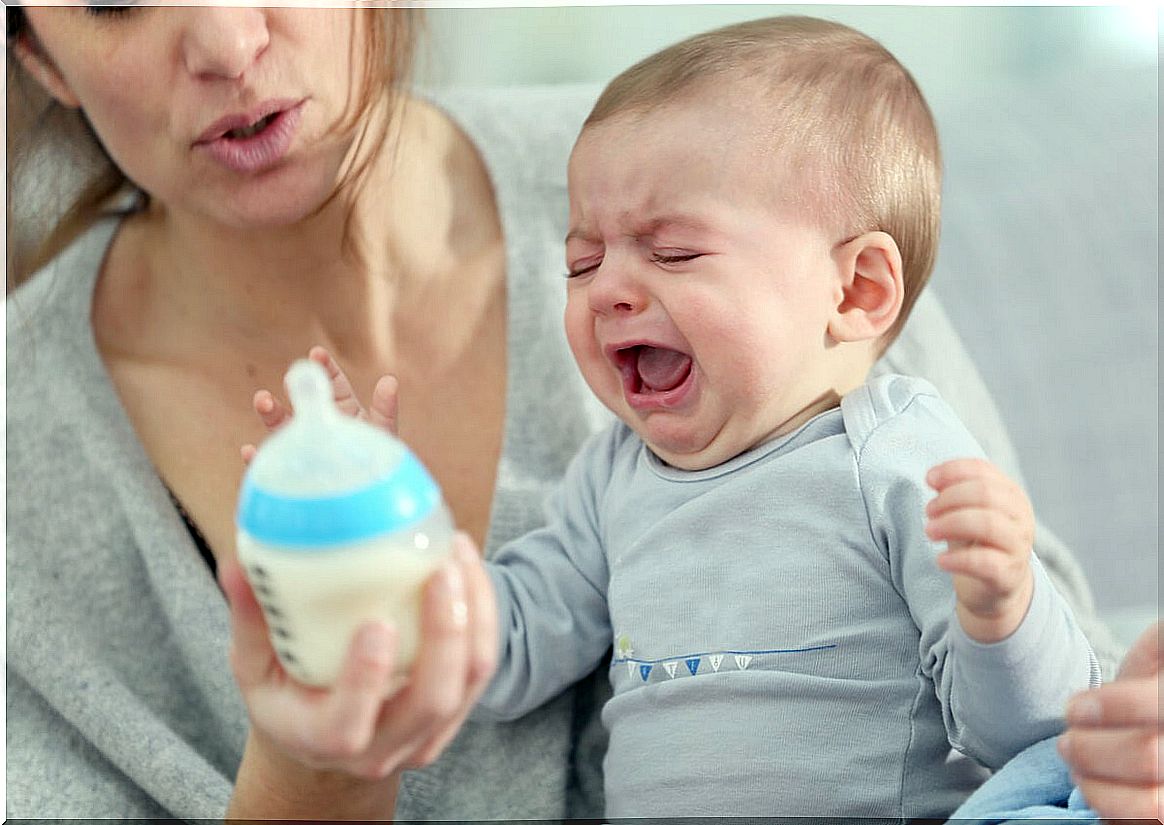
Signs that your baby might be hungry help control it
Newborns need to be fed often. As a general rule, every two or three hours or even more times in some cases.
One of the main concerns of breastfeeding mothers is whether their milk is sufficient food for the baby. The quantity and composition is adapted as needs change, even in each taking on the same day.
During their development, babies go through growth peaks. They are usually hungrier and want to eat more often. This is not to say that milk is no longer good for them.
The same is true for formula-fed babies. The amounts indicated are guidelines for the correct preparation of the bottle, but it is necessary to understand and respect their desire to eat.
They have their own signals to indicate hunger and satiety and over time all parents know how to interpret them. Checking the growth with the pediatrician and your stool and urine rate are the best signs to know that you eat what you need.




